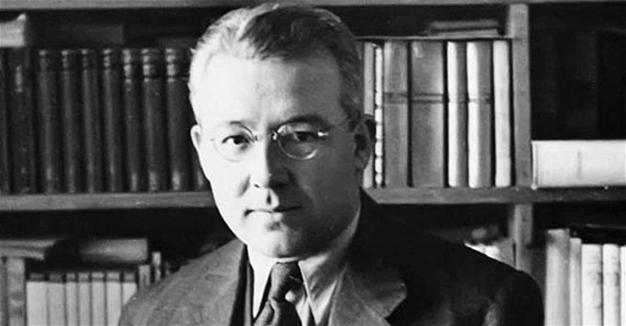Culture minister makes request to publishers for Sabahattin Ali
ISTANBUL

The works of Sabahattin Ali, a 20th century Turkish writer, were banned from being sold and printed for 21 years after the government of then-Prime Minister İsmet İnönü made formal decisions to discredit his literature.
At a press conference held on May 3 over the amendment of intellectual property rights law, Culture Minister Nabi Avcı made a request to publishers to not implement an amendment in the law that rules the “payment of royalties ends 70 years after the death of a writer and the works become a public property” in a bid to pay respect to Ali.
Asked if the amendment would bring a solution to the demand of Filiz Ali, the daughter of the writer, Avcı said they were working on the continuation of the payment of the royalties for her father’s works.
“Ali was killed in 1949 in a place close to the Bulgarian border. Even today, we don’t know the details into his death. Since there is no official record of his death, his family rightfully says that they may not accept 1949 as the year Ali died because his notice of death was given in 1953,” he said.
According to the law, a renowned work becomes public property 70 years after the artist’s death, meaning the royalties paid to their heirs ends after 70 years. However, the year Ali died is contested. The royalties will have to be terminated in 2019 if 1949 is believed to be the year he died. But the family say they do not know if he lived until 1953, when the notice of death was given.
“This is not legally known, too. But since the notice of his death was given in 1953, at least this 70-year process should be accepted starting from this year. But what is more important is that there are two cabinet decisions that banned Ali’s works; one was made in 1944 and the other was made in 1948. The family say that Ali’s works were not published until 1965 because of the ban. This is why this 70-year process should start from 1965, when these works began being published. This is reasonable,” he added.
Avcı said the case of French writer Saint Exupery who died when his plane crashed into a sea during the Second World War can be taken as an example, as nothing has been proved so far in his death. “This is why copyright on his works still continues in the French law. This case is similar to Ali’s case. Maybe we can take this French law as an example,” he said.
Avcı said the Ali family was right in their demand, adding that the ministry was working on an exceptional arrangement on the copyright of Ali’s works.
“Even if not in law, publishers can do something about it so that they do not treat Ali’s works as public property,” he added.
Ali, who wrote many poems and short stories, is best known for his masterpiece novel “Kürk Mantolu Madonna” (Madonna in a Fur Coat), which has recently become a national bestseller and a Penguin classic.
 The works of Sabahattin Ali, a 20th century Turkish writer, were banned from being sold and printed for 21 years after the government of then-Prime Minister İsmet İnönü made formal decisions to discredit his literature.
The works of Sabahattin Ali, a 20th century Turkish writer, were banned from being sold and printed for 21 years after the government of then-Prime Minister İsmet İnönü made formal decisions to discredit his literature.